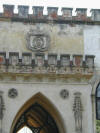Paolus Ondrejkovics-Sandor of Szlavnicza ( Pavel Ondrejkovič )
,, Et si omnes ego non ".
The oldest son born in Trenčín, μέτοικος, in one of the most eminent and oldest families in the territory of our state, father of the professional officer captain tank Aladár II. Ondrejkovič - Sandor de Szlavnicza, tank troops officer, adjutant of the commander of the tank troops of the 4th Military District in Bratislava Lieutenant Colonel tank Ján Malár, mother Alžbeta Ondrejkovičová born Ličková, clerk. During their pre-school years, parents often moved. The father organized and started motoring in the Czechoslovak army in the crews of Dašice, Dvur Králové, Přelouč, Jaroměř,
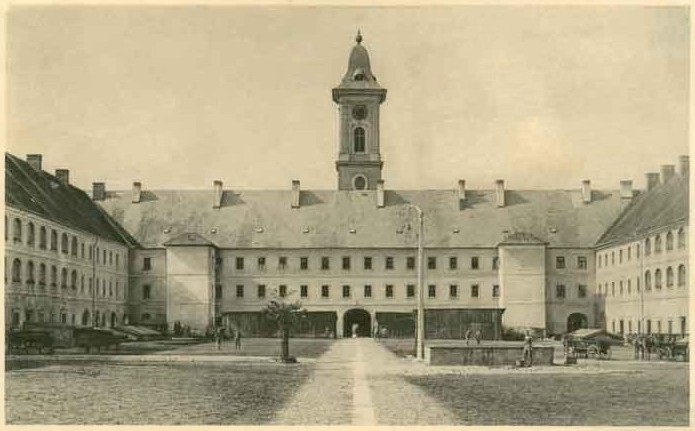
Fortress Jozefov, on the left where the author's family lived, were officer's flats without heated heating, in the cellar there were wood and coal warehouses for these flats.
Jozefov, Vysoké Mýto, Mikulov and Sereď. Officers from the Czechoslovak army in this time to have with motorisations of army litle experience. Their the better part seven years in time the protectorate not serv in the army and lost capability accommodate existent accrue for armed force. After 1948, Defense minister General Ludvík Svoboda held many officers to be thrown out of the army for his views or to participate in World War II on the Western Front. Their removal was mainly sought by Bedřich Reicin, appointed as Deputy Minister of Defense for Personnel Affairs.
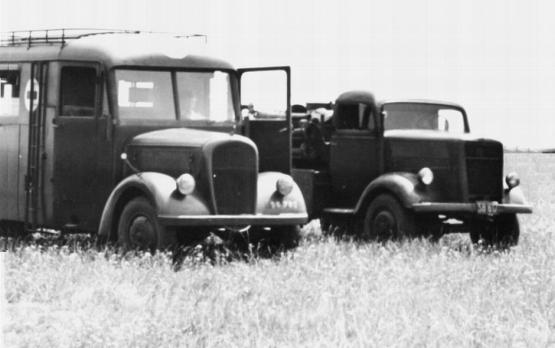
Military Ambulance Škoda 256 and a trophy truck Opel Blitz tank of Czechoslovak army in the year 1949.
Draftees usually do not know ride nor in bicykle, motor car dont known. Cpt. A. Ondrejkovics self graduated him it selected the ablest men in the management and operation of cars, and tanks. They then led as driving instructors and training soldiers, sergeants and officers under his supervision. Captain Aladár II. Ondrejkovics after him motorisation unit was established subsequently prevelovaný to other units with similar tasks. Father has him as a three-to four-year bravas travel to Prague for the MNO and to factory Praga, where the download for his new military unit trucks Praga RN.
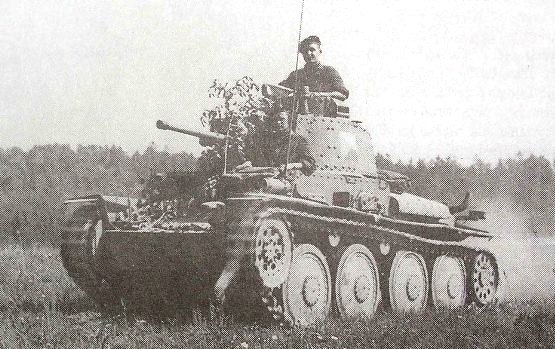
Father of the author tank captain Aladár Ondrejkovič had direct experience in the operation and management of light tanks Praga Lt 38 Slovak Army from the years 1939-1944. The Czechoslovak army took 30 of these combat vehicles by 1945 the arsenal. Until 1969, one of them stood in front VŠJŽ - Military School of Jan Žižka (FTVŠ Lafrankoni UK) in Bratislava.
_____k__pia_____siebel-si-204d-c-103-ok-adr-aeroclub-brno-cernovice-lkcl.151211_131934_23.jpg)
In photo military truck Praga RN and transport airplane Aero C3A/Siebel 204D. Autor it recalls the night driving military colons new Praga RN of Prague, with fathers who graduated from the military and stables full of horses in shaggy garnisones Jozefov and Mikulov.
Czechoslovak Army parc of car at the time consisted of vehicles of different origin. Author remembers amphibious Jeep and VW KDF, with whom they can not scrape out of the water on the steep side of the river, on

the Dodge, which had the cowl still graine white star. Of trucks will clearly remembers Praga RN and Tatra 128 Uniform of the army at that time remembers the British beattledress by father occasionally wear, tmavozelenú uniform with red with white rajtkami leder and later standart uniform with green rajtkami tab and Russian type. For soldiers remember their ungainly creatures reluctantly carrying out his military service and their paid uniforms of different colors, probably of German origin. He remembers uniforms model 21 of soldiers basic services of pioneer regiment in the Sereď to three storey commissioned houses and barracks next Vah river with wooden Barak, for training soldiers wade roty cross Váh the smallest soldier carried away downstream. Clearly you are referred to the uninviting dormitory military families in the strength Jozefov on huge, dark, cold yard. In Jaroměř was slightly better.
According to the order of the Minister of Nutrition no. 236/1949 Coll. of 27 October 1949 The Cooperative of Economic Distilleries, Bratislava, ceases to exist. Valid from 11.11.1949. Effective from 31.08.1949. The Minister of Nutrition orders pursuant to § 11, par. 1 of the Act of 2 December 1948, no. 278 Coll., On the Center for Management of Agricultural Products.
Zápotocký Antonín h.h. Ing. Jankovcová Ludmila h.h.
In Mikulov flats were commissioned in the new houses on the hill and objects to military barracks stables for Alejo high poplar. He remembers decorated with gold lines, acting service officer barracks and the deteriorating situation in Mikulov, the father bear the day of home services in addition to its automatic pistols and cavalry karabin M.38 Mosin-Nagant. For proof techniques remembers British tank Cromwell and German Self-propelled artillery Hetzer. From remembers aircraft Me 109 (once landed on us today. Freedom in Bratislava) and Arad (issued by Parachute tower in the park today, the Presidential Palace in Bratislava). Forget the rivalry, characteristic of a war between the older pre- Czechoslovak army officers without battle experience, veterans of foreign armies in the West, the army corps in the USSR, Czech officers with combat experience on the eastern front and the SNP, sergeants period of pre-martial without experience promoted by 1945 to ranking military, the army of the Protectorate tzv. vládneho, former guerrillas and worker commanders ending. These relations are transferred directly to their families and disseminated through their wives. From the misty memories it creates and a rare light moments, such as memories of Spindleruv Mlyn, where the parents of recreational facilities in the military before 1948, the local game with Světlanka, daughter of General Jaroslav Dočkal and Lieutenant Soviet Army Maja Afanasijevova.
VI. Sector V - Czechoslovak StB (arresting Group 3 Division V. sector, transmit arrested members VI. sector - the sector inquiry, whose reputation is well awful today). Sector VI. A - to 15 October 1951 Commander - Major. Bohumil Doubek ;
Remember the lack of basic foodstuffs in Bohemia and Moravia. Food, clothing and shoes were on the tickets. But this did not mean that their citizens had to obtain. Better situation regarding food at the time in Bratislava. Author as a child and his sister regularly spend approximately two months in the year too old for his parents in Bratislava. (School started here in the primary school leavers in the Slavic street on the corner have tobacconist war invalid, formerly known Slovakian fighter ace). Author tobacconist visit with her father. Pilot Pavel Zeleňák greeted from his father, pulled up his pants and showed them overshot leg with firing part of the calf. Resort with his old mother to Grossmarkthalle purchases. Bilding in the marketplace and its surrounding underground parts was sufficient for the domestic sale of food, of which the quality and assortment, we are today or nesníva. (However, it is necessary to take into account seasonality and the durability of the goods). Authors old father a few years ago you took a loan in the bank to purchase a vineyard in Koliba. For seasonal work you regularly recruit workers. Insoluble problem for it was that the state forced him to pass at a fixed price for a certain quantity of grapes. For this price the cost exceeded the revenue of the vineyard, but to repay the loan in the original amount and in due time. Therefore, despite a higher retirement age have to work as an accountant too. I.e. then the state had immoral and illogically of old mann directly financially subsidized. Nowadays, even the author did not report the relevant cadastre meremal for his repeated request to issue a document proving the ownership of the vineyard in Bratislava, Koliba at the time. In the year 1953, when properly organized and have trained to become officers Czechoslovak army excluding labor and parts of the commanders of the former army corps in the USSR for the regime uncomfortable. The authorities of discarded army and imprisoned some remaining officers. (Before war officers and sergeants majority meanwhile went to the proper military pension). Officers from the West had already been fired rebellion of army and in prison. Father was in army prison at the turn of 1950-1951 and after
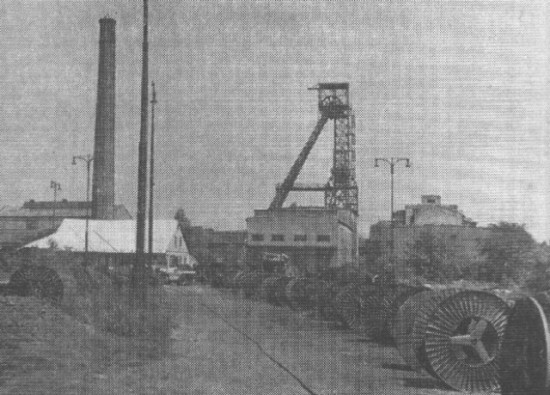
the coal mine Kladno - the mine Czechoslovak army - president Edward Beneš. In mine it visited his brother-in-law diplomat Andrei Vrbacký.
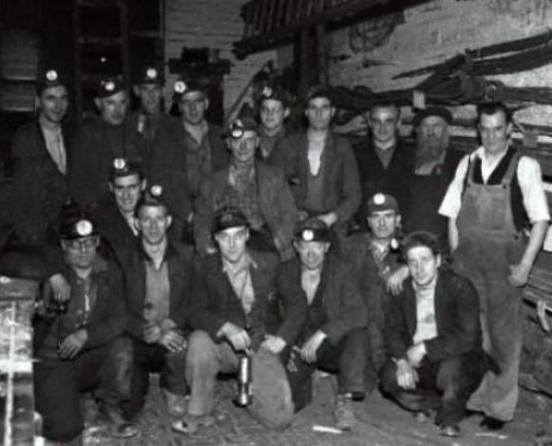
Recently far out mine when it looked black from coal dust, the brother-in-law cry. After the release of the father received the order to perform military service in the original allocation due to lack of interest of officers in the Czechoslovak army.
In the year 1953 the authorities carried out searches at the SNB address Trenčín, Štefanikova 33, (9) ie house which was declared a permanent family of captain Aladár Ondrejkovič to permanent residence.
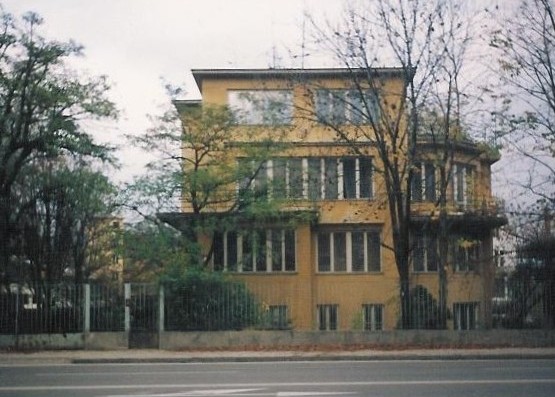
In this house in Štefanikova 33 were found a large quantity of stock of spirits, valuables and other goods. People who hid themselves goods, as in the war years, tried to conceal the Czechoslovak military person who is not subject to civil legislation, ie the master Aladár Ondrejkovič. In this villa wife's family he had a permanent residence but Cpt. car. Aladár II. Ondrejkovič with family and therefore hampered by the regulation of the Czechoslovak Ministry of Defence A - XIV. Law enforcement agencies interrogated in the Cpt. Aladár Ondrejkovič with wife, which damaged the army in his name. It was a public secret that person, who was one of the actors headly scandals hidden in a psychiatric Hospital on the advice of their relatives among the most prominent and aggressive circles Czechoslovak StB (State secret security) and Communist party in the time. For this discarded Cpt. Aladár Ondrejkovič of the army and his family too with military service apartment in Sered. It was necessary to have someone spread public.
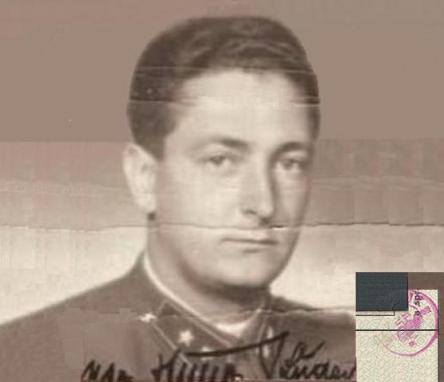
First lieutenant pion. Ľudovít Hrušovský served in the Czechoslovak army together with Lt. cavalry Aladár II Ondrejkovič already in 1936 in Jozefov. Together they also served in the Rapid Division of the Slovak Army in the North Caucasus in the years 1942-1943.
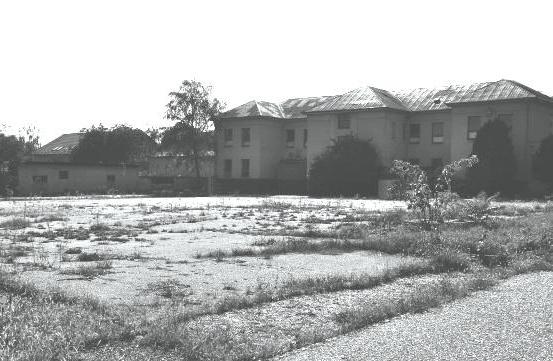
In 1953 together served in the 64th Engineer Regiment in Sereď Cpt. automobile Aladár II. Ondrejkovič Lt. Colonel pion. Ľudovít Hrušovský. In the years 1951-1953 was set up at the 64th Engineer Regiment School for officers in reserve (ŠDZ) engineer troops, which was moved here from the Engineering College (ŽU) from Litoměřice. Commander of the school was Lt Colonel pion. Ľudovít Hrušovský. After their release from the army in 1954, their families met.
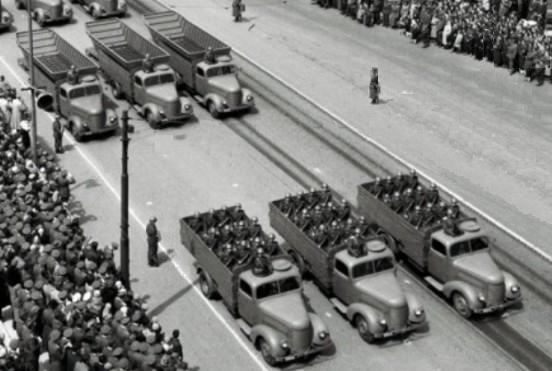
V r.1952 sa slávnostnej vojenskej prehliadky v Bratislave, so svojou jednotkou s automobilmi Praga RN sa zúčastnil aj autonáčelník 64. ženijného pluku v Seredi kpt. aut. Aladár II. Ondrejkovič. Riadil ju generál Jaroslav Ťokan bol v r.1952-1955 veliteľom 2.vojenského okruhu v Trenčíne. Od roku 1950 boli sovietski poradcovia veliteľstva 2. vojenského okruhu generálplukovník Michail Matvejevič Danilov (od júla 1950 zaraďený ako vojenský poradca veliteľa vojenského okruhu československej armády), plukovník N. I. Jevsejev, N. A. Metelov a na veliteľstvo 9. divízie v Trnave dosadený plukovník I. M. Proničev. V r.1952 bol na podnet veliteľstva 2. vojenského okruhu v Trenčíne aj MNO iniciovaný trestný proces býv. Ľudového súdu v Trenčíne sp. zn. 2 T 399/1953, nakoľko pre sovietskych vojenských poradcov vyhliadli vilu na Štefánikovej 33 v Trenčíne. Generálporučík Jaroslav Ťokan bol dôstojníkom od r.1920, okrem Vojenskej akadémie Hranice absolvoval v r.1931-1934 aj Vysokú válečnú školu v Prahe. Sám sa ženil podľa predpisu MNO A XIV. Napriek tomu mu nerobilo problémy od r.1953 prenasledovať kpt. aut. Aladára II. Ondrejkoviča a celú jeho rodinu (s následkom smrti jeho otca správcu učiteľa v. v. Štefana II. Ondrejkoviča) práve pre naplnenie predpisu MNO A XIV jeho manželkou Alžbetou rod. Ličkovou.
He has taken them into his apartment grand father Stefan Ondrejkovič in Bratislava. To this was not enough, the authorities distributed four bedroom his apartment and left them only one room. This caused the death of old father Stefan Ondrejkovič. Person, who occupied second part of flat address in street Czechoslovak army No 46 (2 rooms and bathroom) was then editor of the Czechoslovak broadcast Eugen Fillo with family. Father of the author as a fired officer had problems to find a job. Until 1965, he worked as a laborer in a car repairer firm TATRA Regena N.E. Rugged and able family to shame for state (public and persons familiar with his family origin) sold newspapers on the street. Sometimes it knew his countryman and former soldiers, were of his situation, then resentful, and gave its views to the authority of states too. Their offense had to bear and Secretary of the Central Committee of Communist Party Jozef Lenart, which was extremely uncomfortable. His former wife was a widow, her late husband in the SNP (Slovak national uprising) campaigner Alexander Makarenko, which family of Aladár Ondrejkovič give job in firm Baťa and selflessly helped him in war years (Government departments and the Communist leadership also knew that then First Lieutenant Aladár II Ondrejkovič early 1945 to help the 86 people of Čierna Lehota arrested in elementary school in Trencin on the basis of martial law so they were released. There was a shooting them). Mother of the author in this situation ill for TB. He and his three siblings were up to improve his health placements in various pediatric facilities in all state. Military sanatorium Vidnava in Northern Moravia is the place where was Pavel. When you relax the pressure to persons father and his familys of most primitive circles Communist Party and State secret security he was allowed to be employed in the place of junk in the University library. Underperforming paid position in the security technology KUNZ can hold up to 1968.
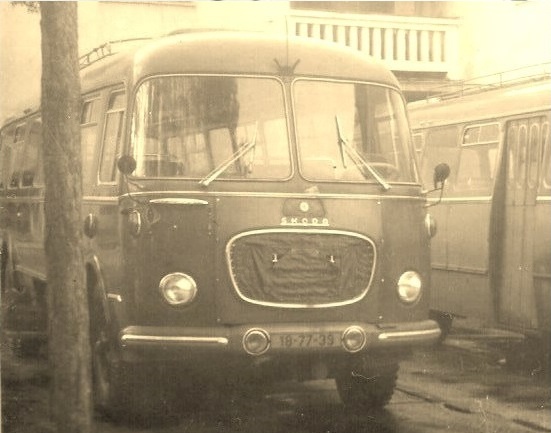
The Vidnava Military Children's Health Regenerator possessed a convenient kaki green bus Škoda RTO. Children went for excursions to Olomouc, for example, where they visited the Bishop's Palace, Jeseník Spa, Praděd and Jeseníky. The bus was hired by a health care employee, mindful of the children. He was also a gardener and a maintenance worker, he always consulted. The child was willing to give an explanation when they asked him for something.
In military children, the army devoted extraordinary care. In a non-violent form, they were led to discipline, relationship to the army and the republic. The environment and the atmosphere of the Vidnava Military Children's Sanctuary copied the environment and atmosphere of the Military Academy of the Hranice and reminded the spirit of Sokol (the Director of school), the inter-war republic and the Czechoslovak legions. Children's abilities, characteristics, and physical dignity were closely monitored. The staff of the sanatorium were gently told that they were very important to the army. The book by Jozef Kollár "I was a child spy," the author finds herself completely hair-drawn. Children are not so easy to manipulate and, in particular, not children of military personnel. They would have to be orphans or children from socially excluded families. But they did not have access to a military children's facility. Militants, parents of children (married under the A-XIV National Defense ministry Code) would never allow it.
_____zo_szpb_7.80312_141921_23.jpg)
Army General Ludvík Svoboda (the author of it came into contact in 1962 in a military medical facility Vidnava military convalescent home for children when he worked at the Military History Institute), President of the Czechoslovak Socialist Republic and commander-rector of the Brno Academy of Defense (VÚ 1404) Lieutenant-General Jaroslav Dočkal.
Vidnava, military crew in the North Moravian Region, Šumperk District. In 1961, there were 1,500 inhabitants. The crew consisted of the Military Children's Sanctuary with the School (subordinate to the Chief of Health Administration of the Ministry of Defense) and other units.
Their old swimming training in a pool, Bratislava Grosling, where his coach was orthodox believers and noble man Karol Grossman and famous swimming Record breaker, a participant of Olympic game in the famous Melbourne Vladimir Skovajsa. Author of the Sports Club Slávia Bratislava has brought his sister Tanja, Republic of youth teams champion in swimming. Contrast, the author brought to the club fellow Marián Benkovič and Vladimír Miller (son of Mrs. Viera Millerová editor (born Čáslavská in the years 1942-43 Secretary of the Ministry of Economy) after her husband was president of Czechoslovakia Dr. Gustáv Husák). Ms. editorin Viera Millerová later Husáková worked in the Pravda and on the street Czechoslovak army in the former Slovak publisher of political literature. Its director was Irena Blühová, wife (study avangard Bauhaus in Dessau) of Imro Weiner-Kráľ, cousin Dr. Viktor Pavella (author's father, a witness at the wedding in 1944) the author's grandmother's classmate and founder of the Slovak field photography. Author classmate as their son had sometimes the opportunity to observe the inside left-wing intellectual environment of the Slovak elite DAV and and Mrs. Joseph Miller, Viera Millerová. Their way of thinking was completely different than in the old highest society came Catholic family Ondrejkovič especialy Turba. Perhaps he was thinking more the author's mother's family Stiglitz, Buchler and Ličko.
When he pressed the pressure on the father of the author and his family from the most primitive circles of the Communist Party and the State Security because of the economic interests of the highest state government, he was allowed to work underground in the University Library. The under-paid place of the security technician in the KÚNZ was only after 1968.
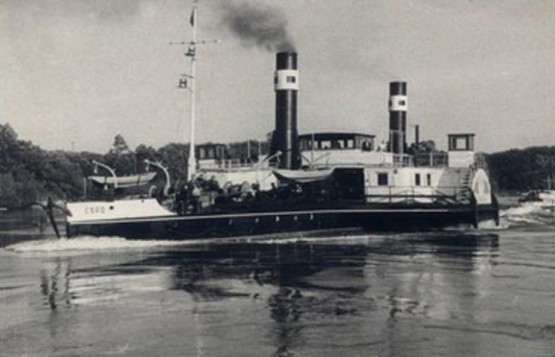
Author as a seventeen year old with classmates worked in the Bratislava port to repair the Czechoslovak steam tug ČSPD Orava. Pictured his time the most powerful katarakt steam tug Orava port of Komárno in countercurrent navigation.
V súvislosti s ekonomickou reformou ČSSR člena ÚV KSČ a predsedu komisie pre reformu Otu Šika už v r. 1964 sa obrátili ústredné orgány iniciované aj podpredsedom vlády a predsedom Štátnej plánovacej komisie Odřichom Černíkom na maminu autora Alžbetu Ondrejkovičovú so žiadosťou o sprostredkovanie obchodných kontaktov na sesternicu otca autora politicky prenasledovaného robotníka, býv. kpt. aut. Aladára Ondrejkoviča. Boli to Lady Gizelle rod. Ondrejkovič a jej manžel Alexander Kerney z Toronta. Hlavné tézy Šikovej reformy boli pripravené na jeseň 1964. V januári 1965 ich schválilo vedenie KSČ. Do praxe ich začali implementovať už roku 1966. Npr. v ČSPD n. p. ktorá prepravovala oceľ pre Alexandra Kerneya po Dunaji už v 1965. Vedenie KSČ už nemalo zasahovať do riadenia podnikovej sféry direktívne. Podniky sa mali riadiť prostredníctvom podnikových rád, ktoré mali tvoriť zamestnanci, a tiež prostredníctvom odborníkov, manažérov. Z centra sa malo určovať len najdôležitejšie makroekonomické smerovanie.
Podniky mohli začať samostatne pôsobiť na vnútornom i zahraničnom trhu. Mali mať možnosť kooperovať bez ústredných sprostredkovateľských organizácií.
On 14 October 1964, at the plenary session of the Central Committee of the Communist Party USSR, they deprived the leading party functions of Nikita Sergeyevich Khrushchev. He was accused of bourgeois thinking and hasty solutions, but in fact his colleagues were afraid of the reforms Khrushchev planned on the Communist side.
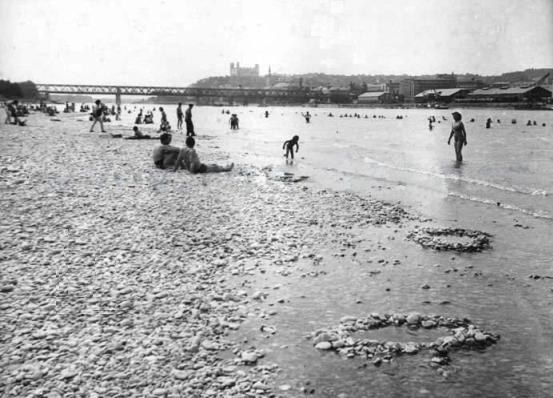
Danube gravel beach Lido in Petržalka around 1966. In the picture on the left side compared with the stores shipping companies Czechoslovak Danube Navigation, National Corporation (ČSPD N.E.), which was until 1993 existence depends on downstream transport of steel, which purchases president of Thyssen Steel Company of Canada and Belfield Investments Mr. Alexander Kerney husband (from his purchases were dependent on the supply of Čs. population imported goods from foreign exchange) Lady Gizelle Kerney born Ondrejkovič of Toronto, Canada (cousin of Lt. colonel tank v. v. Aladár II. Ondrejkovič) in Czechoslovakia.
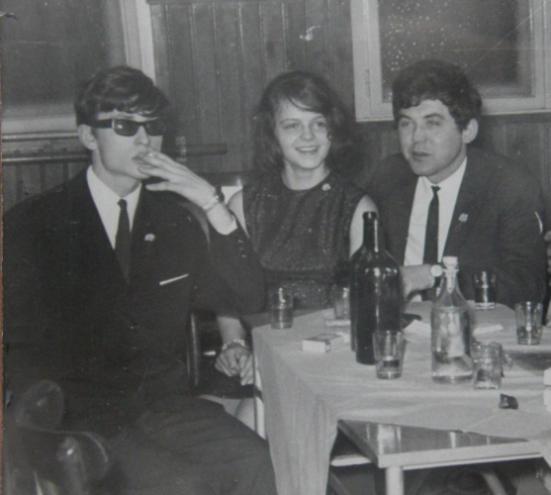
Sokolovňa in Bratislava in 1966. Beside the author Ms. Dagmar Benkovičová (San Francisco), sister of his classmate from elementary school.
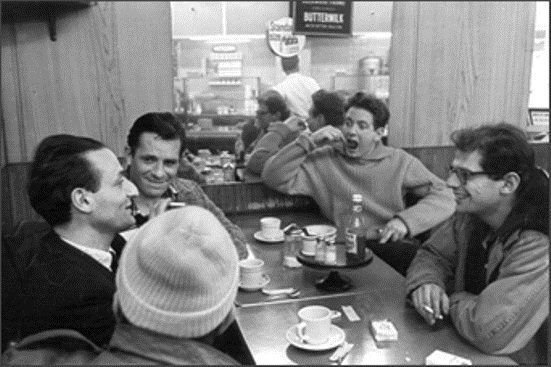
A late-1950s New York minute: clockwise from far right, Allen Ginsberg, Gregory Corso (in cap), the painter Larry Rivers, Jack Kerouac and the musician David Amram. Although it has many, or even know, our generation significantly affected in Bratislava.
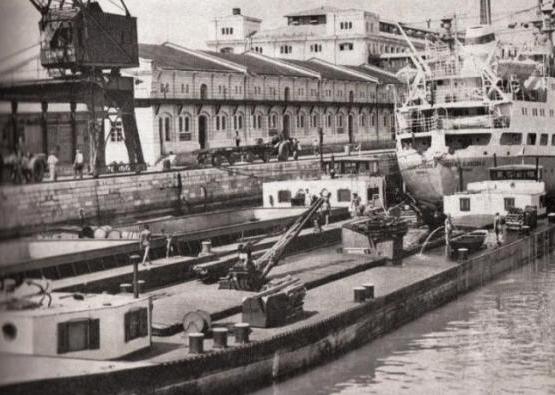
The Czechoslovak barges ČSPD 10 025 and ČSPD 01 005 unload construction steel from the Třinec Ironworks N.E. in the Romanian port Galati in September 1966. Sideline tractors transport it to stock and to ship Novaya Kachovka to the landing port designated by the owner of the goods, Alexander Kerney, President of Thyssen Steel Caribean.
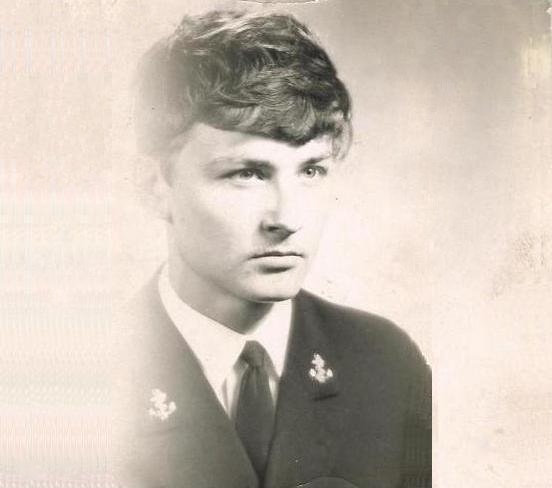
To call up Pavel O. on 8 October 1966 he joined the performance of military service to Czechoslovak 62nd Automobile Battalion to the 3rd Company in Ostrov nad Ohří (MU 4404) No development ???, 213. (Battalion commander was Lt. col. Drexler, commander AS First Lt. Randuška, commander 3th Company Capt. Krejza, Battalion Chief of Staff Mjr. Randák). Battalion was subject to the 20th Motorized Rifle Division in Carlsbad (VÚ 8038, commondor from division Lt. colonel Jozef Němec).
On the occasion of a military oath, his mother Elizabeth's aunt, Mrs. Marta Hladká, a native of Rais, and the world-famous photographer Mrs. Irena Blühová (Weiner) visited him in the Ostrov nad Ohří, in 1939 the owner of the famous left-hand bookstore at Mariánská No 8 in Bratislava.
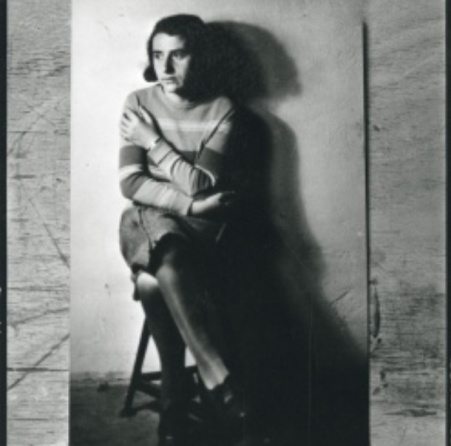
A graduate of avant-garde European cosmopolitan art school Bauhaus in Dessau, department of photography and typography, the former owner of the publishing Irena Blühová (Weinerová). It was the girlfriend of Považská Bystrica grandmother Author Júlie Ličková born Stiglitz and sister in law Dr. Viktor Pavella Councilor of Slovak MI, a witness at the marriage of the author's parents in Spring, 1944.
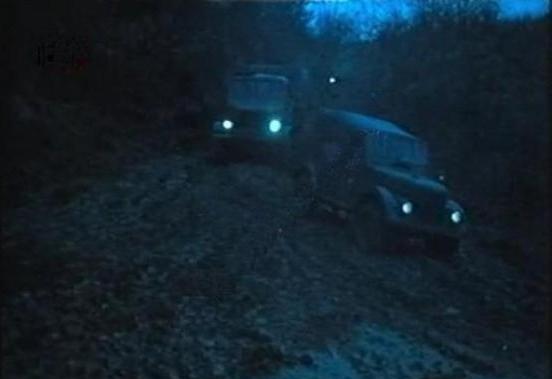
Czechoslovak military vehicles of the military unit MU 4404 GAZ 69A and Military off-road truck Praga V3S after the announcement of a night alarm during exercises in forests near Mariánské Lázně.
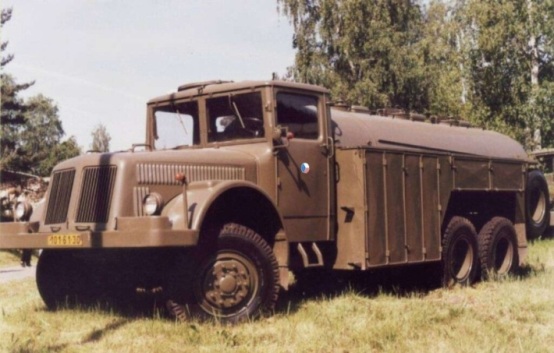
Even in the autopark in Ostrov nad Ohří always refilled Tatra T 111C refueling vehicles from the 62nd automobile battalion were supplied by PHM 20th Moto shooting division Karlovy Vary. Tatra 111 with trolleys a lifts parked in a car park had amortized munitions for the division. When their author tried behind the autopark, they were also stable on the ground. Their powerful 12-cylinder Tatra V910 was excellent. The ride with them was very pleasant on the field and on the road, despite the fact that the steering wheel was difficult and the repair of any defect of the tires and their passing twice a year was very demanding. The young soldiers of the Basic Military Service, the driver who were assigned to the Tatras T 111 had their shoulders growing year after year, unlike those who were assigned to Praga V3S or Tatra T 805. Despite this, all soldiers of the auto-traffic wanted to ride on the Tatra T 111.
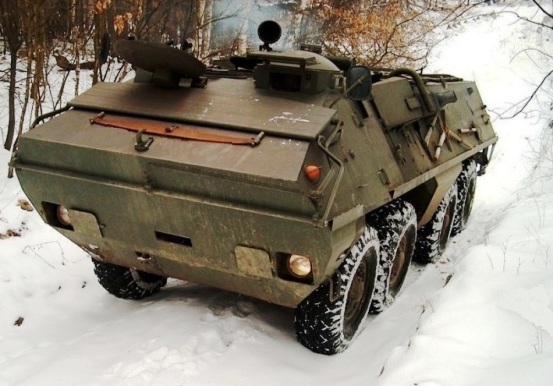
OT-64 SKOT armored transporters of 20th Motorized Rifle Division of Carlsbad participated in joint weekly exercises including winter with car battalion VÚ 4404 Ostrov nad Ohří. For the first time they came to the barracks in Ostrov nad Ohří in the autumn of 1966 as the escort of the most modern Tatra T-138 AV 8 vehicle, which remained permanently in the department. Impressions have made all the soldiers and officers of 62nd car battalion self-paced by modernity, elegance, practicality and his V engine (air-cooled, 180 PS, eight-cylinder Tatra T-928-14S). After 1993 they were decommissioned and sold to foreign and domestic buyers, or their scrapping despite the fact that the possibilities for their modernization were not exhausted.
The Tatra T-138 AV 8 (with a similar T-928 engine) wasted the recognition of soldiers of the 62th Automobile Battalion, including the author, with modernity, elegance, quality of workmanship and comfort. In 1966, citizens of the Czechoslovak state were much more demanding on the quality of Made in Czechoslovakia's engineering products than today. They considered it self-evident that it represented the world's top.
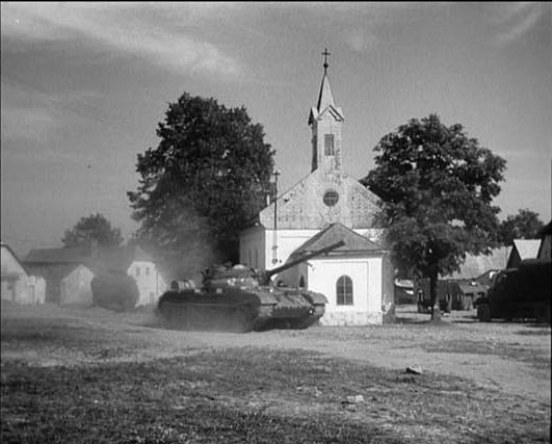
Czechoslovak 62th Automobile Battalion underwent a large military exercise in cooperation with its tanks T54A within the 20th MTR Division in the military training area of the Czechoslovak Army Doupov 2X a year.
In March 1967, with his regular weekly battalion with a festive march, his commander, Lt. colonel Drexler repeated his order, which forbids soldiers and officers of VÚ 4404 to visit the pub "U Růže" in Ostrov nad Ohří. He stressed that the light women who originally visited the miners from two years ago closed uranium mines in Jáchymov visited him. Foreign Trade Minister, National Socialist Hubert Ripka signed a secret agreement in November 1945 that gave the USSR the right to use for 20 years all uranium mined in Jáchymov.
On March 23, 1967, Richard Nixon, a US presidential candidate, arrived for a three-day visit to Czechoslovakia. He also visited Lidice, and in Prague in Lobkowitz the Palace acted with the director of the Institute for International Politics and Economics, Antonín Šnejdárek.
On March 31, 1967, the most famous story by Pavel Ličko, entitled "One Day at Alexander Izayvich Solzhenitsyn," was published in the weekly "Cultural Life." She did not contribute to awarding the Nobel Prize to literature to a Russian writer.
Soviet leadership in 1967 probed with the First Secretary of the Central Committee of the Communist Party Czechoslovakia and President Antonin Novotny the possibility of placing Soviet troops on the territory of the Czechoslovakia, but the proposal was rejected. On October 14, 1964, i. the disappearance of Nikita Sergeyevich Khrushchev's functions made it clear that the Central Committee of the USSR and its new secretary-general have different views, such as the Central Communist Party and its first secretary, j. the need for economic and political reforms.
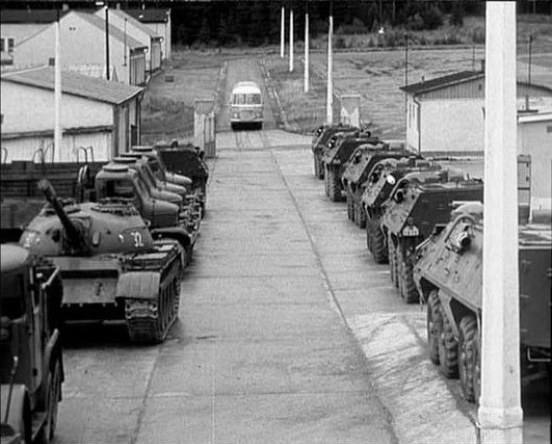
Stored Technology, inviolable supplies from the Czechoslovak 20th Motorized Rifle Division of Carlsbad (Armored Transporter OT 64 SKOT, Military off-road truck Praga V3S, Tractor Tatra T141 and Middle Tank T54 A), which is within the given time regularly alternated in the military servicest.
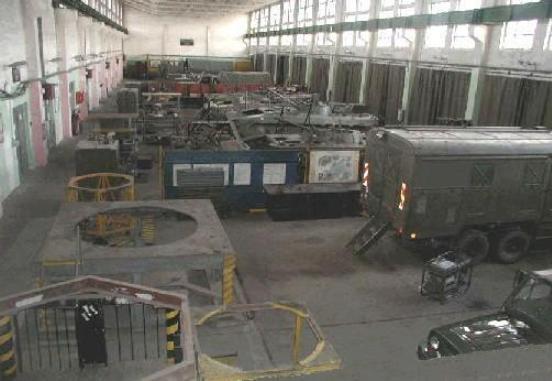
Czechoslovak Automotive and tank repair shops in the Podbořany. Author here was detached to three months in exchange specialist, has been accommodated in the building of the third and fifth Tank school tank company.
Podbořany, military crew. It was formed by the 12th Tank Regiment, 20th Tank Battalion, 20th Technical Service (all subordinated to the 20th Motor-Rifle Division) and other units. The city was occupied by the units of the Soviet 14th Guards Motor-Rifle Division during Operation "Danube".
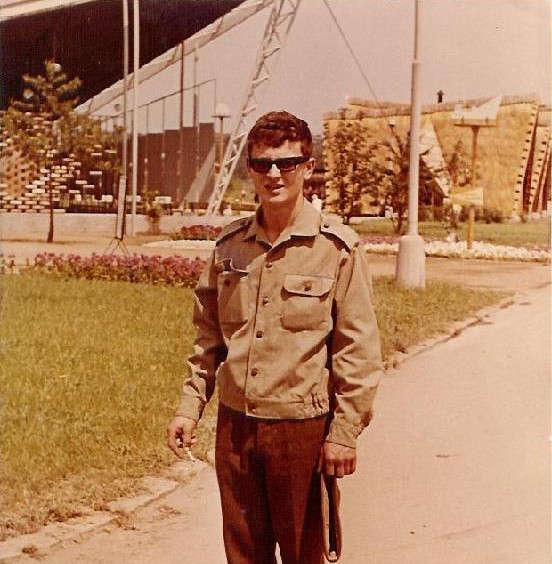
The author, the Czechoslovak soldier of the PSO stopped in the spring of 1967 at the exhibition center in Pilsen when he was sent from the MU 4404 Ostrov nad Ohří to a very well staffed and technically equipped Military Hospital in Pilsen to check with a dentist. The author has dressed military uniforms vz. 21 made of natural materials supplemented with a jacket made of modern polyester at that time, in fact, it was not suitable for the summer season.
Vo februári 1968 vypracoval kolektív vedeckých pracovníkov Vojenskej politickej akadémie Klementa Gottwalda v Prahe návrh čs. vojenskej doktríny, tzv. Memoranda. Snažilo sa definovať čs. národné záujmy pri obrane ČSSR a kritizovalo určujúci vplyv Varšavskej zmluvy t.j. Sovietskeho zväzu na výstavbu ČSĽA. Doporučovalo aj zmierniť napätie so Západom bilaterárnymi dohodami, čo si nárokoval iba ZSSR.Do obecného povedomia sa dostal viac návrh Akčného programu ČSĽA, ktorý v mnohom Memorandum spresňoval a doplňoval.
Autorovi neuniklo, že 5. - 8. mája 1968 sa presunula sovietska 24. motostrelecká divízia z SV Lvov do Poľska a zaujala postavenie u československo-poľských hraníc oproti českému Tešínu. Spomenul si ako sa predvojnové veďenie ČSR dostávalo svojou pasivitou v Porýní a Rakúsku do defenzívy. Bol názoru, že reformné veďenie KSČ nebude mať úspech, nakoľko tiež nereagovalo.
Act No. 82/1968 Coll. on judicial rehabilitation came into force on August 1, 1968. Although in many aspects insufficient, he caused panic among the officials of the Communist Party of Czechoslovakia, judges, prosecutors and the National Security Corps.
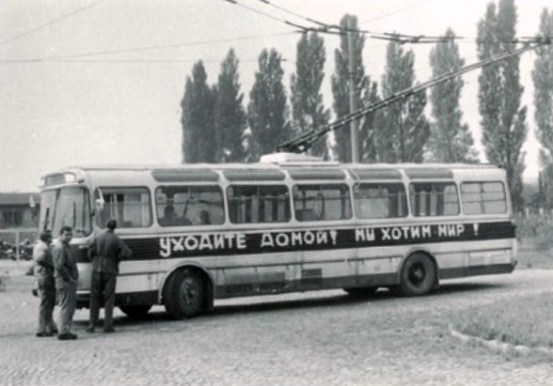
The stop "Ostrov" of Skoda's trolleybus test line, Ostrov nad Ohří - Jáchymov, 21 August 1968. During the Operation "Danube", the Ostrov nad Ohří was occupied by the Soviet Intervention Units of the 20th Guards Motor Rifle Division (commander General Grigory Ivanovich Děmidkov).
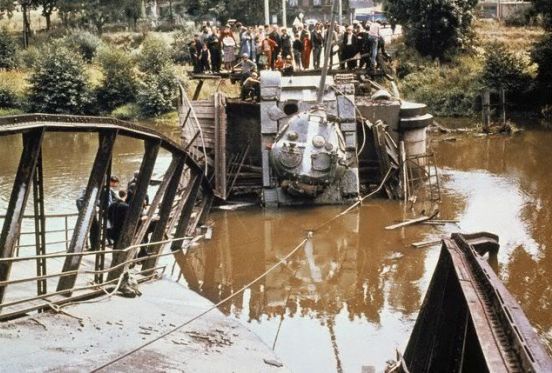
Carlsbad, Dvory August 21, 1968 Bridge over the river Ohře to break the Tank T54A of soviet military intervention from 27th gards motor-rifle division, commondor General Nikolaj Vasiljevič Storč.
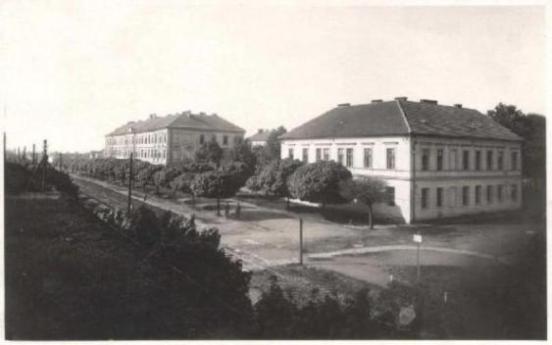
Barracks of Czechoslovak 251st Anti-aircraft artillery Regiment of the State Air Defence in the Vysoké Mýto, where he was transferred to 2nd Fire Battery (KS-18) author 16/02/1968 from 62nd Automotive Battalion from Ostrov nad Ohří.
From 9 to 27 April 1968 was foundet four officers of the Czechoslovak State Security Service - Lieutenant colonel Bedřich Pokorný were killed by a sore throat (among others the organizer of the Action D Officers going to 1953), MUDr. Josef Sommer shattered his head, Lieutenant colonel Jiří Počepický was found wrapped in the woods and JUDr. Josef Břešťanský, who dealt with rehabilitation at the Supreme Court, was found mordet on April 2, 1968 by security authorities next village Babice.
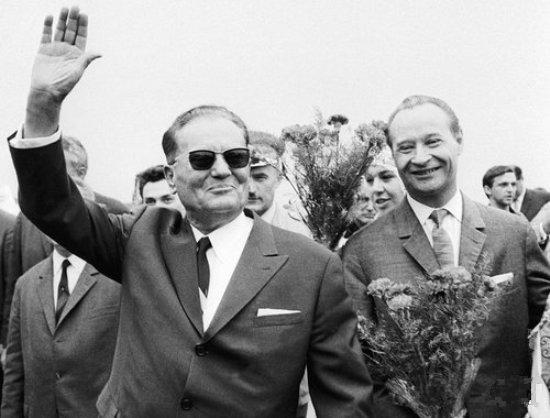
Prague 8 August 1968. Author, soldier of the Czechoslovak army by carefully monitor the progress of the state visit of President of Yugoslavia, in the Czechoslovakia, as regarded the Communist Party First Secretary Alexander Dubček, a good man, but a tie. This is the President of Yugoslavia Josip Broz Tito could not definitely say. Marshal Tito great warrior, very experienced and skillful politician, however, the Czechoslovak friends could not decide.
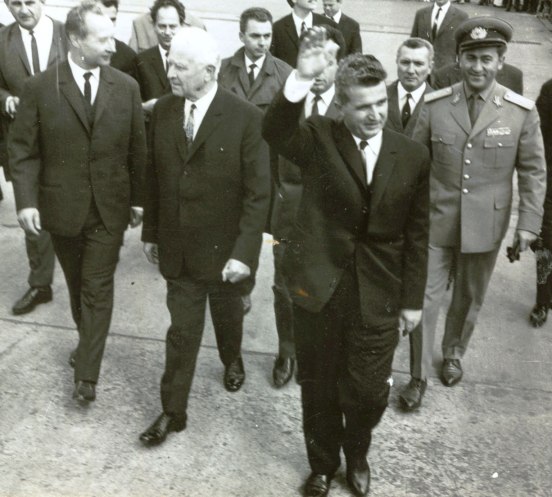
Top leadership of Czechoslovakia (President of Czechoslovakia, General Ludvík Svoboda, the Communist Party First Secretary Alexander Dubček) and Romania (President and First Secretary Nicolae Ceauşescu KSR) - two children of Trianon, Prague 15 August 1968. It was their commitment to jointly tackle the situation enough ? Romania certainly.
On August 21, 1968, at 01:00 pm, the first Soviet intervention units of the 20th Guards Motor Rifle Division (from Grimma) arrived in Ostrov nad Ohří. 01.45 pm came to the barracks of the 62nd automobile battalion GAZ Soviet Army. His crew was Lt. col. Karasinsky and four soldiers. Krasinsky demanded acceptance by battalion commander Lt. col. Drexler, whose clutch brought shortly after 02.15 hrs. Lt. col. Drexler summons the secretary of the City National Council, the chairman of the Communist Party Communist Party and the commander of the People's Militia. Krasinsky informed them that he was appointed city commander.
Military garrison in the town of Vysoké Mýto formed in addition to the 251st regiment PVOS and headquarters of the 1st Automobile Brigade (VÚ 7370), commander of Col. Theodor Jirousek, 1st Automobile Battalion, 4. Circuit Automobile Warehouse (subordinate to the commander of the Central Military District) and other units. Commander 48th motostreleckej Division of the Soviet Army Major General A. Guskov had a Commander position in the area northeast of Vysoke Myto. The city and crew were during the operation "Danube" neutralized units of the Polish intervention 10th Panzer Division in the subordination of the Polish 2nd Army.
Vidnava, a military garrison in the North Moravian Region, Šumperk District. In August 1968, a military garrison with a school for children (subordinate to the Chief of Medical Administration) and other units formed here. In August 1968, the city of Vidnava was occupied by units of the Polish 10th Panzer Division (JW 2843), commander of Col. Marian Koper.
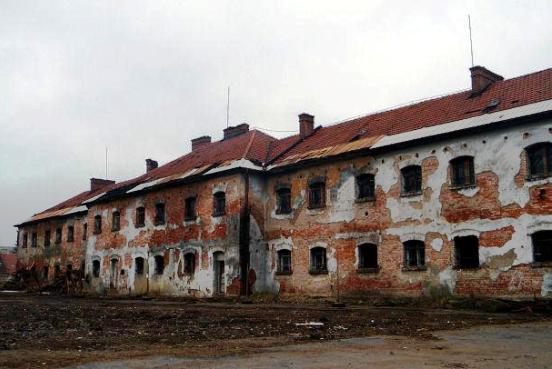
Headquarters Czechoslovak 251st Anti-Aircraft Artillery Regiment ECS 5100 from Vysoké Mýto for 43 years now. Author for PSO in 1968 signed a document 2000 words and a representative of conscripts in crisiscommittee 251st Anti-Aircraft Artillery Regiment - AU 5100 Vysoké Mýto.
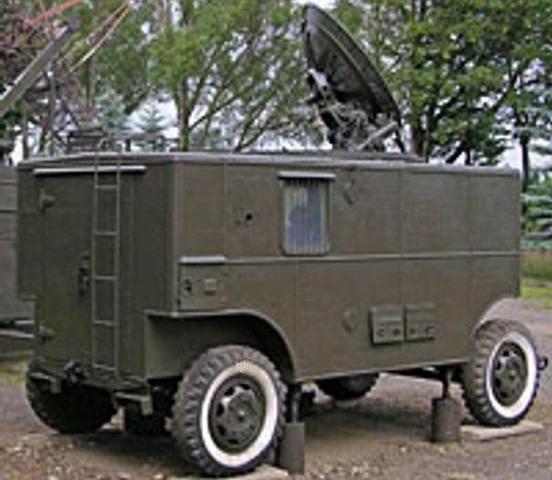
Czechoslovak Radar SON 9A (Станция Орудийной Наводки СОН-9A, towed AAA fire control radar). Its front axle functioned as a pantograph. They were dragging their military trucks Tatra T 111. Shooting radar screen in August 1968 the author observed Intervents moving aircraft in the airspace of the Czechoslovak Republic.
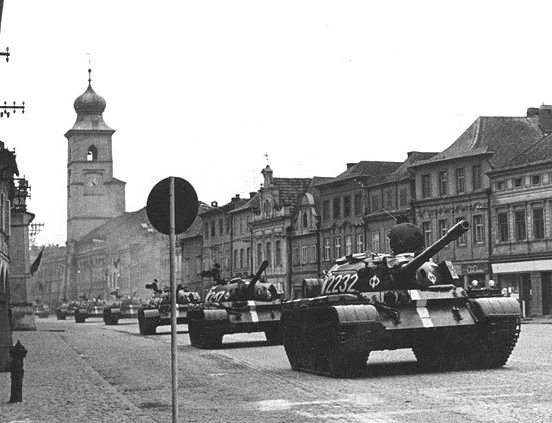
Regiment of State Air Defense in the Vysoké Mýto after 21 August 1968. Early morning on 22.August 1968 24th Tank Regiment of the Polish Second Army of intervent moves through Litomyšl combat orders to lock in the barracks Czechoslovak 251st Anti-aircraft artillery Regiment SAD Vysoké Mýto, Higher Command 82nd Anti-Aircraft Brigade Jaroměř of 4th Army Central in Military District.
Vidnava, military crew in the North Moravian Region, Šumperk District. In 1961, there were 1,500 inhabitants. In August 1968, there was a military crew, made up of the Military Child Health Regime with School (subordinate to the Chief of Health Administration) and other units. The city of Vidnava was occupied by units of the Polish 10th Tank Division in August 1968 (JW 2843), veliteľ plk. Marian Koper.
On 21 August 1969 against the demonstrators were deployed Armored Transporter OT 64 SKOT
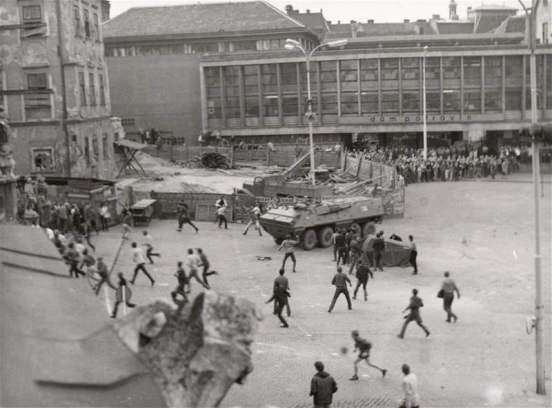
A total of 5 people were killed and several people suffered fire injuries by the Components of the Public Safety and Peoples Militia Uniforms. Some people did not take part in the demonstrations, they were away from the streets. The shooting of the civilian population was allegedly unconditional. Against the demonstrators, the OT-64 SKOT armored carriers also intervened in Bratislava. Uniformed gunmen interfered with peaceful residents across the city and arrested them, for example, on public transport stops. In connection with demonstrations against the occupation of USSR occupation forces in the Czechoslovak Republic, the author was imprisoned.
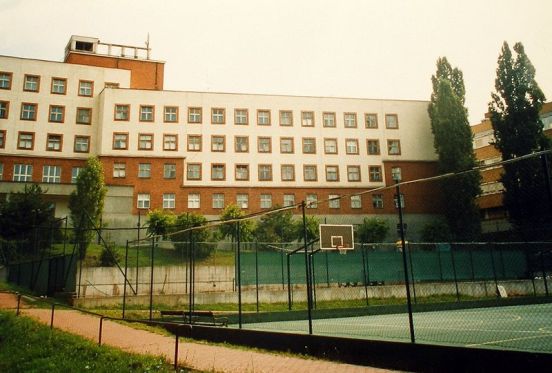
Given the high number of imprisoned persons for this purpose then the State allocated building VŠJŽ - Ján Zizka of Trocnov Military School in Bratislava. (University FTVŠ - today, a university dormitory Lafrankoni).
In his work the year 1968-1969 was the commemoration on the grounds that many orthodox communists of his business did not according to the KSČ, after entering military jacket over again, mali charge to keep in place. It added that to them with certain castling almost all succeeded. Authorities Czechoslovak State secret security (StB) to the author and do not forget each year before 21 August it predvolávali to be heard until 1975, but not to the meaning, the author did not retract into the communication. Repeated that he did not know what is really at issue. The author was expelled from the State authorities the possibility to study at university. The employer and the immediate superiors mali objections to the study of secondary school time, he studied it, despite employer resistance.
(chief Milan Neuschl he repeated: the son of middle-class officer, not to study or to the midle school). The author nevertheless tried repeatedly for admission at the Law School faculty in 1973 and 1974. Examining Board in the Faculty of him openly said, his right to not accept, despite the fact that his family was a co-Law Faculty of Komenius University in Bratislava. (Dr. Martin Mičura Minister for Administration and president of Slovak Supreme Court).
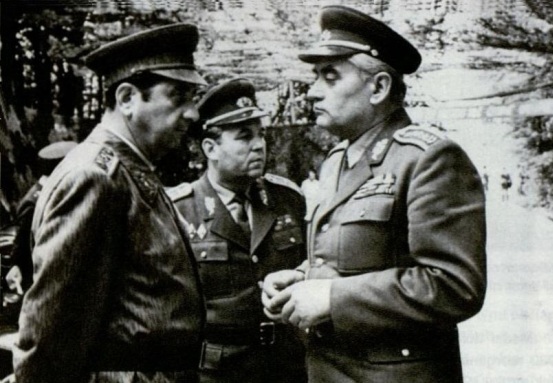
Veliteľ Východného vojenského okruhu v Trenčíne generál Samuel Kodaj a zástupca náčelníka VPA KG v Bratislave generál Stanislav Weinlich stáli na opačnej strane politického spektra ako autor a rodna Ondrejkovič vrátane jej vetvy v Toronte. Obaja zaujímali postoje podľa pokynov sovietskych poradcov. Generál Samuel Kodaj poznal osobne Alžbetu Ondrejkovičovú rod. Ličkovú z ÚR SZPB, ale za jej chrbtom bol proti rehabilitácii jej rodiny. Do očí sa jej to nedovolil povedať, nakoľko štát nutne potreboval jej osobné sprostredkovanie do Kanady z národohospodárskych dôvodov.
Later the author leader of ZV KSS Communist party Jozef Danáš. openly said that if you ask a member of the KSS (Communist party), the restrictions applicable to the person for the family of origin shall cease to apply. Author face to misunderstand. In the following years was circumvented in the promotion and subsequent functional raising wages. Was appointed to the post and then when it did not want others to carry out the work on its financial position nevýhodnosť. Naoko superiors him in good faith to advise that the maried too in the interest of their careers, not wanting to be his own experience as a blackmail scheme honest men, and pressed them through a deterioration of living conditions as their children and his mother along with targeted vytláčaním whole family periphery of society.
Employer ČSPD N. E. this did not prevent the author from making use of improvement suggestions without appropriate material and moral appreciation. After the regime change in 1989, he was fairly morally and financially rewarded for some time. The fact is, however, that he was threatened by certain persons, nomenclature cadres of the Municipal Committee of the Communist Party of Slovakia in Trenčín, that if the author's mother does not sell them their shares of real estate in Trenčín, they will be made redundant by his employer. "Et si omnes ego non".
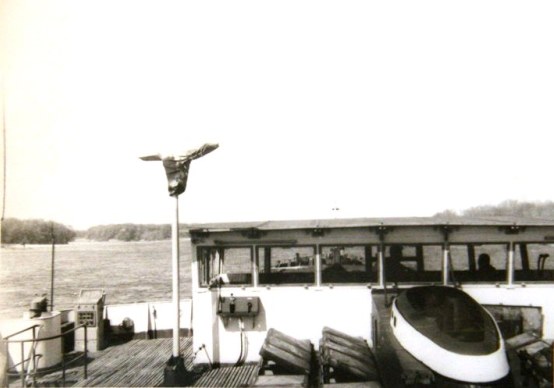
Czechoslovak ship ČSPD DNL 2000 Kysuca the author embarked in countercurrent navigation with full force in the middle of the Danube. Until 1993, transportation accounted ferromaterials long about 70% of the downstream ports of loading ČSPD of port Bratislava and port Komárno.
Employer to use the author did not hinder improvements without adequate material and moral valuation. After a period of regime change was for his work morally and financially by fair valuation. The fact is, however, that he was threatened by certain people, that if the mother does not autors his real estate holdings in the Trenčín, equipping it with the release of his work for the employer. "Et si omnes ego non".
Bild too hot in summer coulden dash-pot on the river Danube - Iron Gate picture Ladislaus (László) Baron Mednyánszky end of the 19 century. More than 65 years later, through these dangerous place first and after regular mall firm ČSPD ships sailed by his relative.
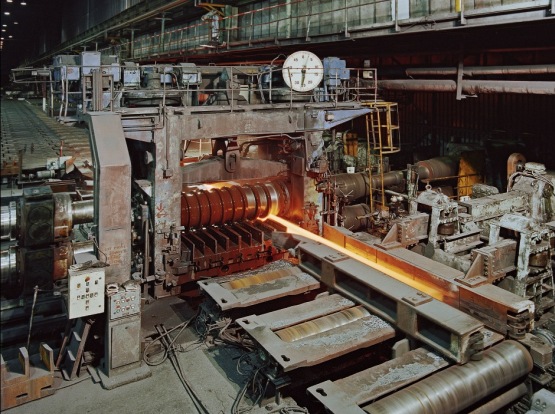
Rolling mills and Ironworks Třinec N. E., where work in the Commercial Department, Mr. ing. Jiří Klaudy. In the position Sales Director of the Slovak firm SPaP a. s. the author said that the name of Mr. Alexander Kerney its knowledge of trade agreements at the purchase of steels produced by Třinec ironworks and that he supplied via the Czechoslovak shipping company ČSPD N. E.
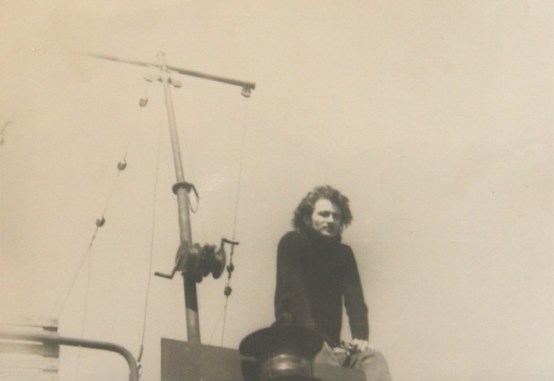
Autor in Czechoslovak ship ČSPD DNL Kysuca taken on board, sailing upstream. The costs of downstream transported tonne on the Danube by firm ČSPD n. p. They represented less than 50% of the countercurrent transported tonne. Downstream transport of goods from the ports of Bratislava and Komárno was involved until 1993 at least 50% of the overall positive economic results firm ČSPD N. E.
In 1906 was transferred the remains of the Transylvanian prince Emerich (Imre) Thököly from Izmir in the Ottoman Empire until 1909 Kežmarok and stored in the mausoleum, extension of the New Lutheran church. Between 1982-1990 the author of this mausoleum relative Anna Sandor de Szlavnicza, his maternal grandfather Stephen II. Ondrejkovič visited several times. On that occasion, always reminded his family and friends in the District Chief of Kežmarok Dr. Alexander Lutšek, brother in law of General M.R. Štefánik.
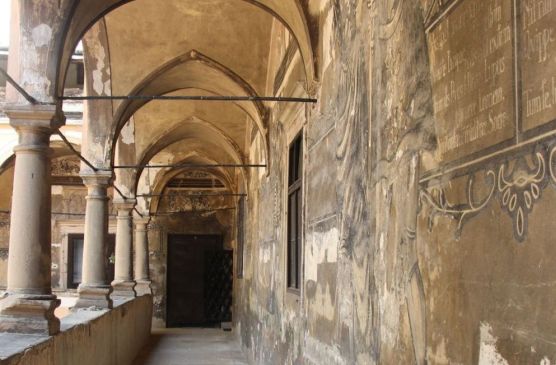
Author several times in the years 1994-1998 visit the State Archives of the Bytča in order to study family documents. Environment lock despite already obviously needed repair, it was inherently close.
Grandson of Lt. colonel tank Aladár II. Ondrejkovič is Michal Ondrejkovič. In the years 1998 - 2005 deal with the judo sport. He was a member of the Sport club Slávia STU Bratislava, which in the 2003/2004 season he became Champion of Slovakia in the 1st Slovak League Judo Association.
Explanation: Lieutenant infantry Jaroslav Dočkal in 1936-1937 study Military Academy Hranice, 1937 commander squad from 3rd Cycling Battalion in Levice and Topolčany from 3rd Riding Brigade of 3rd Rapid Division incuding the 11th Dragon Regiment, where he served also father of author second lieutenent cavalry Aladár Ondrejkovič ; engineer architect Stefan Androvič was the son of Stefan Androvič brother of Colonel infantry Alojz Androvič ;
Notes: On 17 November 2013 the Prince Karel Schwarzenberg during an interview in Bratislava author said he has a picture of a relative of the famous knight of Count Moricz Sandor de Szlavnicza. Author on the occasion of 20 anniversary of the Danube river on which he worked for ČSPD national company attended lectures in the University Library. Among the invited was a famous actress Eva Kristínová (daughter of the famous Brigadier General Joseph M. Kristin) was born in Trencin. When the author presents the Paul Ondrejkovič said only - I know. ; Mikulov, vojenská posádka. V meste sa v auguste 1968 bol dislokovaný 5. Motostrelecký pluk, podriadený 3. Motostreleckej divízii. Mesto bolo v priebehu operácie "Dunaj" okupované jednotkami sovietskej 13. gardovej tankovej divízie ;
Source: Andrej Vrbacký ; Lady Gizelle Kerney born Ondrejkovič ; Marta Hladká ; Literární listy ; cpt. František Cibík ; ing. Jiří Kloudy ; Okupace 1968 Jiří Fidler ;
♫ Hugues-Aufray-Santiano-(1967) ;
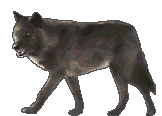
Jacob ben Ze'ev
Dynalkol
13
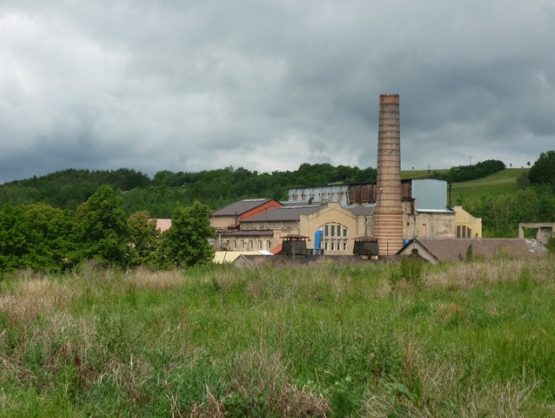
Former coal mine of Czechoslovak Army in Kladno today. Father of the author Cpt. automob. Aladár II. Ondrejkovič was in the military prison Hradec Králové at the turn of 1950-51 and then in the mine Kladno - Dul Československé armády - President Edward Beneš.
According to the Ministry of Justice, between May 20 and June 15, 1949, 110 processes with 1,400 people were to be held. In April 1950 only 6788 people were imprisoned in the Czech lands for political reasons, and a month later it was 11 026 people. A special section for party and political torts has been set up at the Interior Ministry. Paradoxically, his leader Karel Šváb later executed himself.
Podľa nariadenia ministerky výživy č. 236/1949 Zb. z 27. októbra 1949 Družstvo hospodárskych liehovarov, Bratislava, zaniká. Platnosť od 11.11.1949. Účinnosť od 31.08.1949. Ministerka výživy nariaďuje podľa § 11, ods. 1 zákona zo dňa 2. decembra 1948, č. 278 Sb., o Ústredí pre hospodárenie s pôdohospodárskymi výrobkami.
Zápotocký v. r. Ing. Jankovcová v. r.
StB Group I - Security. Presidium for Security (Personnel and Personnel, Political and Educational, Training, Economic, Inspection, Organizational, Legal, Security Officers, People\'s Militia, Labor Force Camps) Department BA - StB Division, Headquarters ŠtB superintendent - Lt. colonel Jindřich Veselý. In 1948 he became the first commander of the StB, and he served in 1950. Since 1949 he has been a member of the Central Committee of the Communist Party.
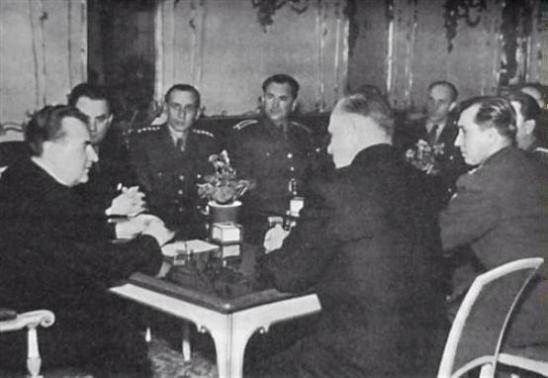
Organizer and Actions "D" - Officers st. Cpt. Bedřich Pokorný third left, managing officer of Agent Valriy Vilinsky, who was deployed against the Democratic Party. Against the Vice-President of the Corps of Officers, Rudolf Fraštacký and his group (Alexander Kornhauzer, Capt. infantry Anton Žúbor, police criminal judge Dr. Aladár I. Ondrejkovič, Gizela Ondrejkovičová, Juraj Fuchs, etc.) Vilinský worked without results. In the picture is the first discount of Klement Gotwald and on his right the minister of the wind Václav Nosek.
Miroslav Pich-Tůma. Klement Gottwald entrusted him with the construction of a secret intelligence organization in the Communist Party and the Union of Partisans. He acted after 1948 at ŠtB. On the day of finding the body of Jan Masaryk on March 10, 1948, he moved at 7 o\'clock in the morning at the crime scene.
Divisional General Bedrich Reicin, NKVD, Head of Defense Intelligence (OBZ), and 5th Chief of Staff, after February 1948 Deputy Minister of Defense. He was executed on December 3, 1952 as one of the so- the anti-state conspiracy center Rudolf Slansky.
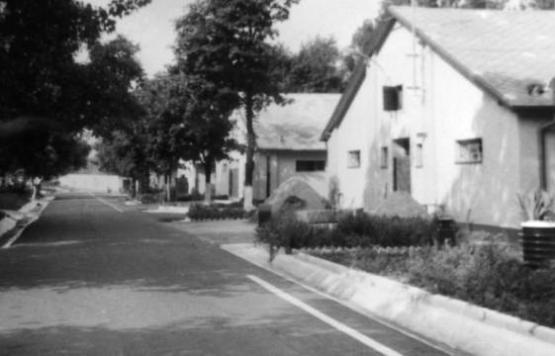
The buildings of the quarters in the barracks of the 64th Pioneer Regiment in Sereď where he served the Captain Aladár II Ondejkovič in 1953 as Chief of Automobile Regiment.
The hotel Tatra (now Elizabeth) in the Trenčín. There were in 1953 exposed the pillory married to Ms Valeria Stiglitz and Josef Čevela (author\'s grandmother\'s sister and her husband). The exhibition had to attend all the inhabitants of Trenčín (next to the hotel is the Trenčín Museum, a former county hall with the coat of arms of family Sandor de Szlavnicza on the front). It made together with the subsequent criminal trial unlawful conduct towards the authorities and the author\'s grandfather retired administrator teacher Stefan II. Ondrejkovič (B shares - Flats) in Bratislava, resulting in his death, although he does not know Čevela spouses (the skyline next to the Hotel Elizabeth is the county palace, where the family of his noble mother Anna Sandor de Szlavnicza).
In the years 1948-1949, eight members of the State Security, headed by Miroslav Pich-Tůma, liquidated the three persons under investigation. After 1953, Tůma was convicted.
Joseph Buckler (Büchler) Birthdate: 18. Februar 1879, Birthplace: Považská Bystrica, Trenčín county, Slovakia. Death: 26. Februar 1954 (75) New York, NY, USA. Najbližší príbuzní: Syn týchto osôb: Leopold Büchler a Rosa ("Rosi") Büchler. Manžel tejto osoby: Tessie Rothschild. Otec týchto ľudí: Private. Brat týchto osôb: Jacob Büchler; Herman Buchler; Fani Büchler; Sarah Schneider (Büchler); David Büchler a 10 ďalších (-ích).
In April 1954, Nikita S. Khrushchev in Moscow told President Antonín Zápotocký that he did not apply the principles of collective leadership in a party, and in his role as the party\'s leading role. Later, Soviet comrades criticized him for unrealistic economic plans. Consequently, Zapotocky set himself up for a new course. It meant a slowdown in investment in the heavy industry in favor of consumerism and agriculture. The union has been weakened and the housing development has been promoted.
On 14-26 February 1956, XX. the Communist Party of the Soviet Union. Nikita Sergejevich Khrushchev, has been the breakthrough, who has set the stage for events not only in the USSR, but also in Poland, Hungary and Bratislava, by striking students at the "Mladá Garda" university boarding school. The organs of the Communist Party of Slovakia and StB were under the influence of development in the USSR polluted and unable to resolve it. The students did not dare. The captain of the reserve, Aladár II Ondrejkovič, was tasked with the striking students by the Military Department of SVŠT and the director of ČSAO Regena National Enterprise Bratislava (a plant located only 100 m from the boarding school). The students recognized him personally as a ČSAO Regen employee and he also sold daily newspapers on the students dorm.
In 1956, the moderate sentence was passed to former StB officer Miroslav Pich-Tůma and changed to conditional.
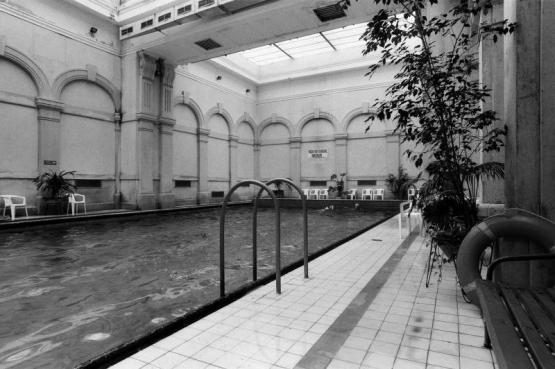
The oldest indoor pool in Bratislava Grossling where the author went to train in the swimming section of sport club Slávia in their fifteen years. His coach was the famous Vlado Skovajsa, a native of Zlaté Moravce where he was until September 1938 the District Chief Dr. Aladár I. Ondrejkovič, a relative of Dr. Martin Mičura. After the arrival of the first Slovak governor Dr. Martin Mičura to Zlaté Moravce (1919-1920) has become an issue of construction of a new school building of the current initiative. Came to the city at that time, a new gymnasium manager and later director Dr. František Skovajsa, he helped to speed up construction of its premises. Manager of People\'s teacher and vocational education in Lednické Rovné later in Trebatice public school administrator and the founder and administrator techer the local People\'s economy school was Stefan II. Ondrejkovič authors grandfather.
Strážky, Mednyánszky family mansion, relative to the author\'s family after Anna Sandor de Szlavnicza, mother\'s of his grandfather administrator teacher in. v. v. Stefan II. Ondrejkovič.
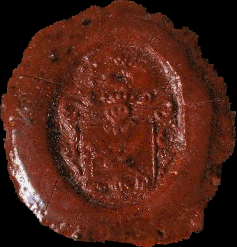
Seal of District Notary Michael Ondrejkovič.
An extensive amnesty was declared in 1960. It has made it possible for the people imprisoned for disagreement with the Communist regime and the Communists arrested during a period of class struggle.
In 1960, former StB offiecer Miroslav Pich-Tůma was amnested.
JUDr. Stepan Plaček sought a judicial and peer review of his case. He was dealt with as a follower of the Slansky case in individual party committees, which assessed political processes. In the 1960s, in his case, full party and judicial rehabilitation took place.
Since 1964 travel abroad has been relaxed. Whoever obtained a foreign exchange promise, or other proven source of money, obtained a travel clause without any problems.

Steam passenger ship ČSPD s/s Bratislava where the author was taken on board in 1965 two summer months. After the decommissioning and sale by Travel agency Javorina was anchored at the quay opposite the Interhotel Devín and served as a floating boat. Succumbed to a fatal fire for about 14 staying guests in addition to personnel in May 1975.
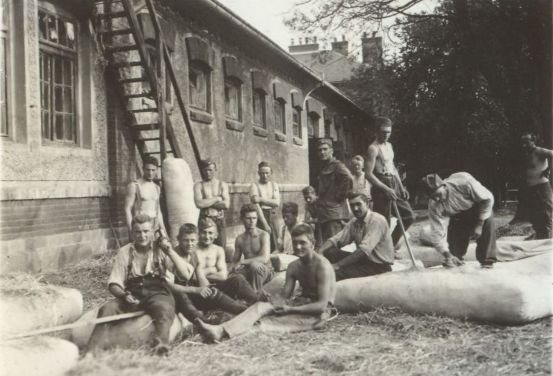
Also in 1966, the MU 4404 in Ostrov nad Ohři exchanged straw mattress in the military as well as in this image from the year 1936. Former owner of the manor Starý Bzenec on which housed the military service in 1936, had previously been the relatives of the author\'s father around 1520 for example Michael Podmanický around 1526 ad Ambrozius kite around the year 1545 Ferencz Nyáry and around the year 1588 Barbora Révay. Rabbi David Oppenheim was the first chief rabbi of Moravia, and later chief rabbi of Bohemia and finally of Prague, where he died in 1734. The estate Starý Bzenec also housed the author\'s mother\'s extended family (Henrich Büchler) until 1943.
The draft principles for improving the system of planned national economic governance entered into force on 1 January 1966. It introduced elements of the market economy and the use of the function of commodity production. In 1967, it was linked to a price change. President Antonin Novotny did not oppose the reforms, but he intended to carry them out carefully, in small, the big ones considered unnecessary shots.
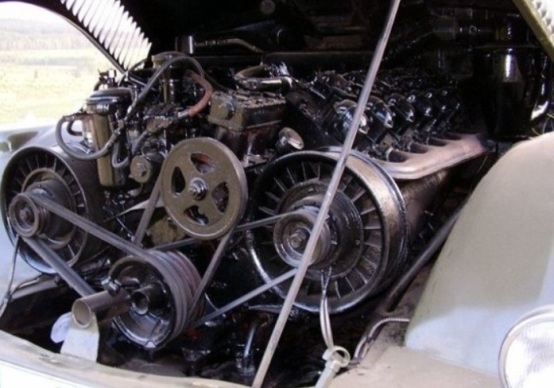
Half of the battalion VÚ 4404 car park consisted of military off-road vehicles Tatra T 111 with a drag or Tatra T 111C. In his car park, the T 111 HSC-5 Car Crane. They had a reliable and powerful twelve-inch air-cooled Tatra V 910 engine. In winter, when it was even - 25 below zero, it always started when the batteries were taken out, it was only necessary to read the newspaper. The only defect was that he was aerated occasionally. The vehicles were little ride, so the copper seals of the fuel system hardened. After they were heated above the open flame and immersed in cold water, it was enough to mount them back.
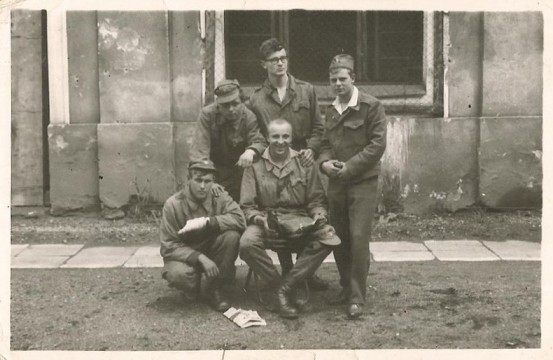
The author\'s military service in the years 1966-1968. The barracks, monastery - Ostrov nad Ohri were in bad technical condition. Image before quarters 3rd Company of the 62nd Automotive Battalion MU 4404. Pictured with missions lines supervisory of 3rd Company for assistance.
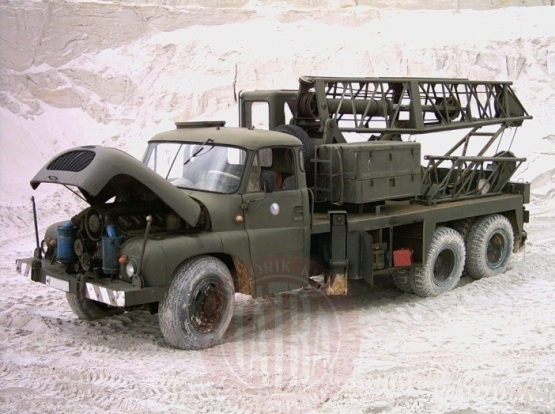
The Tatra T 138 AV-8 wasted the recognition of the 62nd Automobile Battalion soldiers, including the author, with modernity, elegance, quality of workmanship and convenience. In 1966, Czechs and Slovaks were much more challenging on the quality of Made in Czechoslovakian machine products than CZECH MADE or Made in Slovakia today. They considered it self-evident that it represented the world\'s top. They did not expect a gradual decline in the level of machinery production in their country from 1966 to 1989, which accelerated until 2018.
The former StB officer, Miroslav Pich-Tuma, was again in custody in 1968-1969.
At a meeting with the Soviet leaders on July 29, 1968 in Čierna nad Tisou, President General Ludvík Svoboda participated as a member of the presidency of the Central Committee of the Communist Party. According to Alexei Kosygina, he warned them against possible negative consequences of possible Soviet military intervention.
On August 20, 1968, in the late afternoon, Ambassador of the USSR Stepan Vasilyevich Cervonenko informed President L. Svoboda about the entry of Soviet troops into Czechoslovakia.
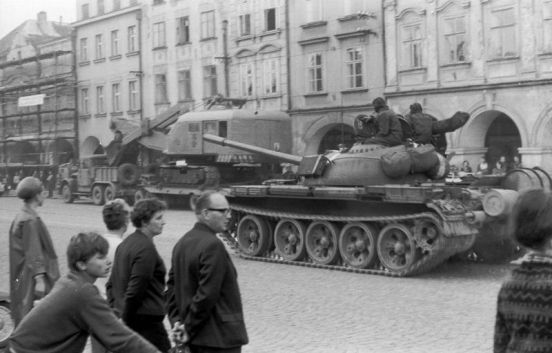
24th Tank Regiment intervention of the Polish 2nd Army in the Litomyšl on 22.08.1968 (to participate in block 251st anti-aircraft regiment PVOS MU 5100 from Vysoké Mýto with its tanks and dangerous anti-aircraft 85 mm gun).
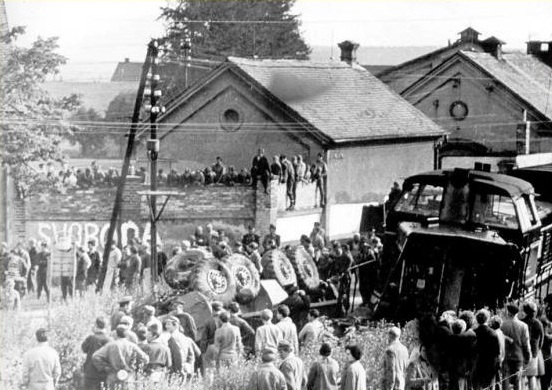
Havária obrneného transportéru interventov na železničnom prejazde vo Vysokom Mýte oproti rokádnej komunikácii kasární československého 251.pluku PVOS v mesiaci august 1968. Obrnený transportér OT-64 SKOT sa síce prevrátil, ale bez viditeľného poškodenia. Rušeň ČSD bol zrelý na GO.
Even after 1968, the President of the Republic, General Ludvíg Svoboda, held officers who were discharged from the army for their opinions, or for participation in the Second World War on the Western Front.
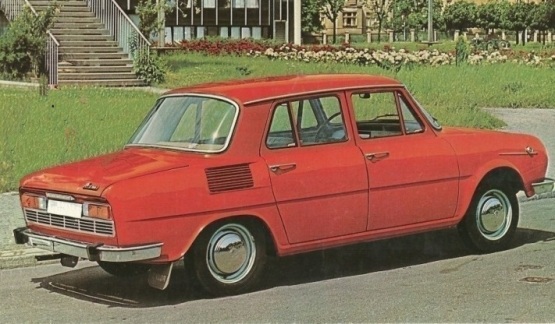
The author has been the owner of the red passenger car Škoda Š 100 since 1970. Citizens have been able to buy cars only for a counselor after a long-term high-value winding in favor of Mototechna National Enterprise in the State Savings Bank. For example, the owners of the foreign currency account, such as the author who had it from the saved diets when working on the ČSPD national craft, could also buy motor vehicles in P.Z.O. Tuzex. In 1974, a scandal broke out at his employer, and the Tuzex vouchers for spared diets were used for a certain transaction by party officials and staff, or their family members. They did not work abroad. The author learned about these perverse proceedings accidentally in the city, drawing them for him as well. He listened to a poisonous comment when his claims from the haggling teeth were returned to the account in the foreign accounting company\'s ČSPD National Enterprise. The case helped to strain at the District Court of Bratislava I. the person who worked in the ÚHÚ until 1945.
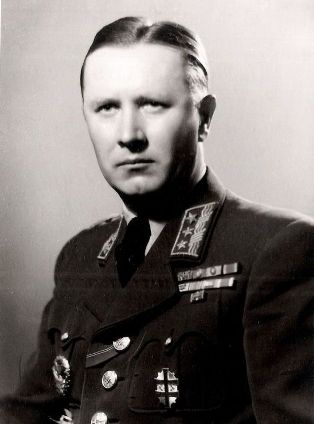
Plk. gšt. Alojz Ballay, náč. štábu RD, veliteľ vzdušných zbraní SR (zakázal nasadenie slovenských stíhačov proti spojeneckému letectvu), prof. na Vysokej vojennej škole, voj. attaché v Berlíne a od 15.10.1944 do 29.04.1945 väzeň v Nemecku. Autor v roku 1970 si náhodne vypočul v čitárni Parku kultúry a oddychu v Bratislave rozhovor jemu neznámych pánov v strednom veku, podľa jeho obsahu bývalých vysokých dôstojníkov Slovenskej armády. Nahlas sa rozprávali o efektivite vývozu oceľe Československej republiky do Kanady a na tému vojenskej doktríny bývalej Slovenskej armády. Autor si v tom čase uvedomil, že ho poznajú cez jeho rodičov a ich konšpiračný rozhovor je určený jemu. Z obsahu konverzácie bolo zrejmé, že sa poznali s pani Gizelou Kerney rod. Ondrejkovič a boli informovaní, že túto oceľ nakupuje jej manžel Alexander Kerney z Toronta. Jednoho z nich autor indentifikoval o mnoho rokov neskôr podľa fotografie. Bol to bývalý veliteľ jeho otca plk. gšt. Alojz Ballay, maturoval v r. 1923 na gymnáziu Ľ. Štúra v Trenčíne.
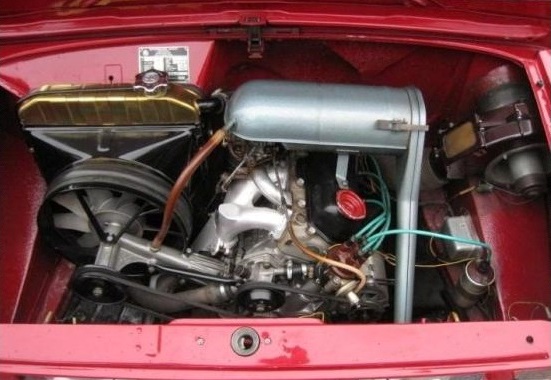
The weaker side of the Škoda Š 100 was a thermostat, splitter and timing chain. The price of spare parts was low, but the level of car service staff also.
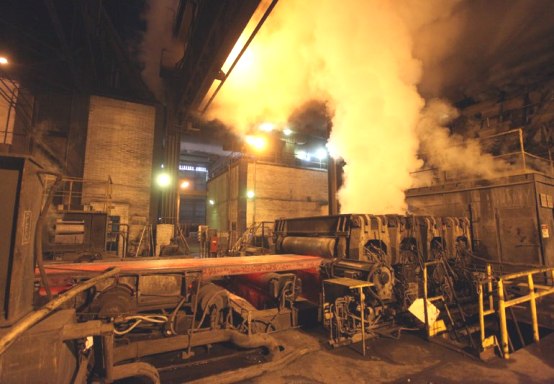
Part of the downstream transportation to the iron works Sartrid Smederovo A. C. formed ingots from smelters firm VSŽ Kosice N. E. rolled on the "Coneco" they said in the Košice husband of Gizelle Kerney born Ondrejkovič Mr. Alexander Kerney. Line said then when firm VSŽ N.E. bought a similar line from the Soviet company "Azovstal" who were not able to put into operation. She ended up in scrap. Only for the purpose of transhipment rolling line "Azovstal" was purchased and built by firm ČSPD N.E. firm 500 ton crane with a seafront pool in the southern edge of Bratislava\'s winter harbor. Then for many years he stood idle in port. At least 50% of former employees firm ČSPD N.E. owes Alexader and Gizelle Kerney (cousin of the author\'s father) on that until 1993 had an above-average wages remunerated.Part workers of firm VSŽ N. E. (USS Steel) it owes them for today.
Prior to the Military Court in Příbram, Miroslav Pich-Tuma was again in 1990 and he rehabilitated him in July 1991. In the first half of the 1990s, his new investigation was being prepared. In January 1995 he lived in Trutnov on the roof of his house.
The Fourth Report of the Czechoslovak State Higher Grammar School "Ľ. Štúr" in Trenčín for the school year 1921-1922, pages 10 and 11. The report is quoted on p. 11, 12 pupils II. classes Reis Štefan, Zliechov (Trenčianske Teplice) and Tiso Jozef, Trenčín, p. 13 pupil IV. classes Kočiš Oldřich (Editor-in-Chief and Aladár Kočiš), Trenčín. Ružena Martinová (future judge, Dr. Ružena Martiny-Brtková, issued a misleading DC TN Resolution "for Death" file No M 155/1947 dated 13.01.1948 damaging and disparaging families Stiglitz, Buchler, Ličko, Ondrejkovič , Lederer, Kellermann), born in Budapest (Trenčín), Ladislav Kellermann, Trenčín and 1st class Oldrich Ondrejkovič (in fact Aladár II Ondrejkovič) were born in Čierna Lehota (Lednické Rovné). Gymnasium staff changed the name of Aladár II. Ondrejkovič to Oldrich. His childless (or those who had only daughters) family members with high status in the Trenčín and Nitra districts, who were designated as the future head of the family, objected to it. According to party no. 4 Class Professor of Aladár II. Ondrejkovič was Vladimír Němec, X., Ch, P, taught Ch, in tr. IV, V, VI, P in Ia, Ib, V, VII, Cs. in I.b, 20 h, in II. POLR. also Z in III, 22 h, classes in I.b, administrator sb. Chh, game surveillance.
5th Annual Report Czechoslovak State Real. gymnasium of the "Ľ. Štúr" in Trenčín. 1922-1923. VIII. class: Alois Balaj - Alojz Ballay Považská Bystrica (Trenčín), Vladimír Brežný, Senica (Topolčany) ....
VII. Annual Report of the Czechoslovak State Higher Grammar School of the "Ľudovít Štúr" in Trenčín for the school year 1924-1925, p. 12, II.A class 57. * Eva Baxová, Vienna (Trenčianske Teplice).
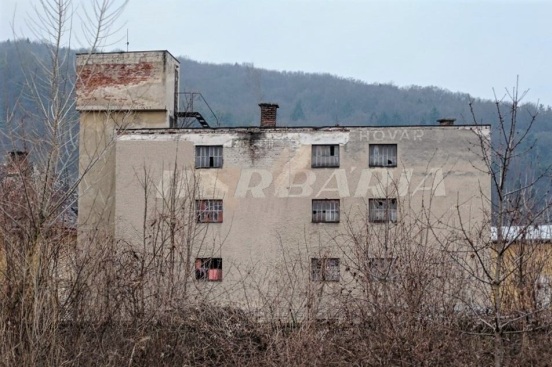
Budova pálenice autorovej rodiny Stiglitz v Trenčíne na Štefánikovej 33 sa nachádza v súčasnosti uzatvorenom objekte kasární Slovenskej armády bez právneho titulu už 70 rokov.
Notes: 652. (390.) Maximilian Büchler; Trenčín County judge Illustrissimus Dominus Stephanus Sandor de Szlavnicza ; Commander of V. Corps in the Trenčín and later President of the Protectorate Government Division General Alois Eliáš lived from 25.11.1935 to 25.09.1938 in Trencin Kukučínova No 3 in the private house of the family of Julia Ličko born Stiglitz, author\'s grandmother ; Alexander Büchler, or Büchler Sándor (September 24, 1869, Fülek (Fiľakovo), Kingdom of Hungary – July 1944, Auschwitz) was a Hungarian rabbi and educator. He is a son of the Talmudist rabbi Phineas Büchler of Móor. He was educated at the gymnasium in Székesfehérvár and at the university and the seminary of Budapest; he received the degree of Ph.D. in 1893, and was ordained as rabbi in 1895. In 1897 he was called to Keszthely ; Since 1936, Bedřich Pokorný has been classified as an intelligence officer at the PAÚ (Preceded Agency Headquarters) in Michalovce. In 1938 he was appointed as head of PAÚ "Rudolf" in Košice with a focus on Hungary and from October 1938 to March 1939 he worked in PAÚ Prešov, where he also performed tasks for Prešov District Chief Dr. Aladár I. Ondrejkovič ;
Sources: Marta Hladká; Irena Blühová; Antonín Zápotocký 1953 ; Elenka Žúborová born Fraštacká 1998; Juraj Fuchs; Alexander Bachnár; Rudolf II. Slánský;








_____2343749[1].20107_203045_23.jpg)














 back
back 
